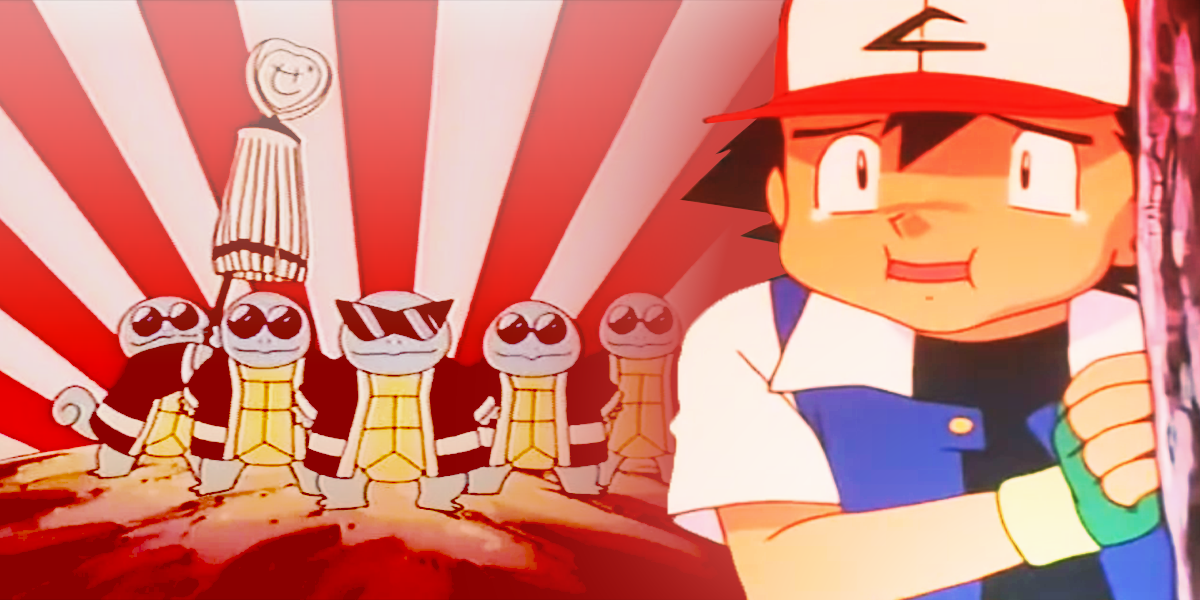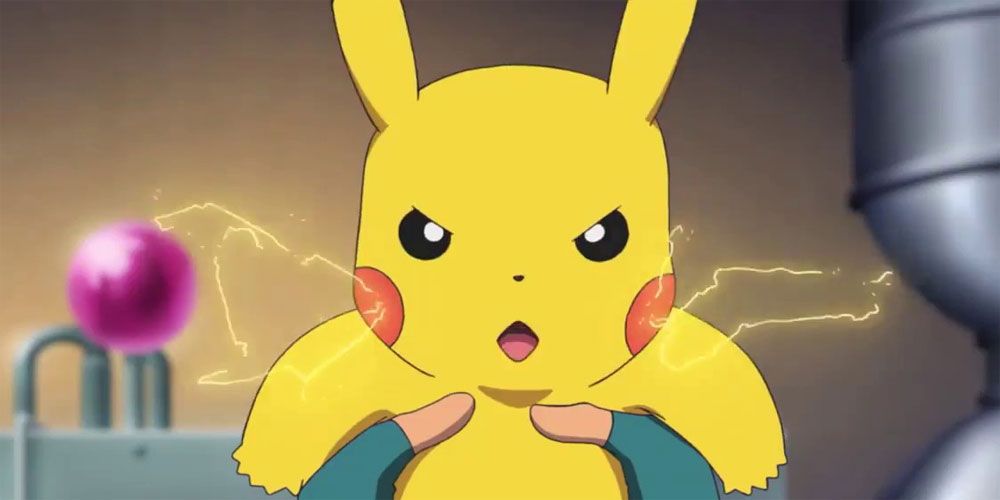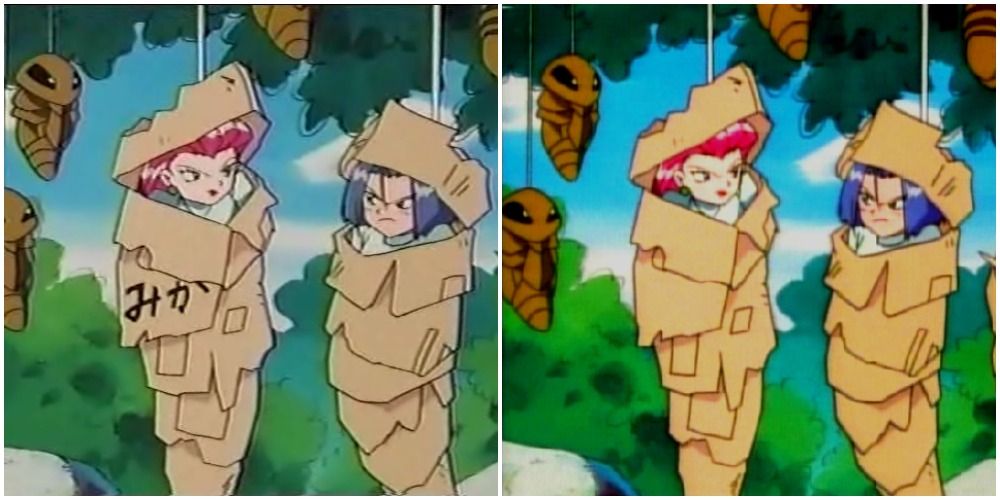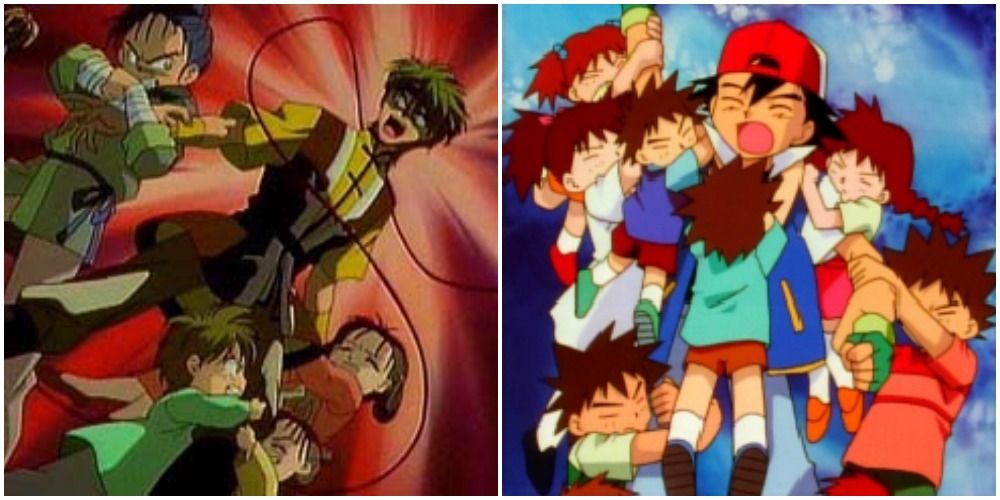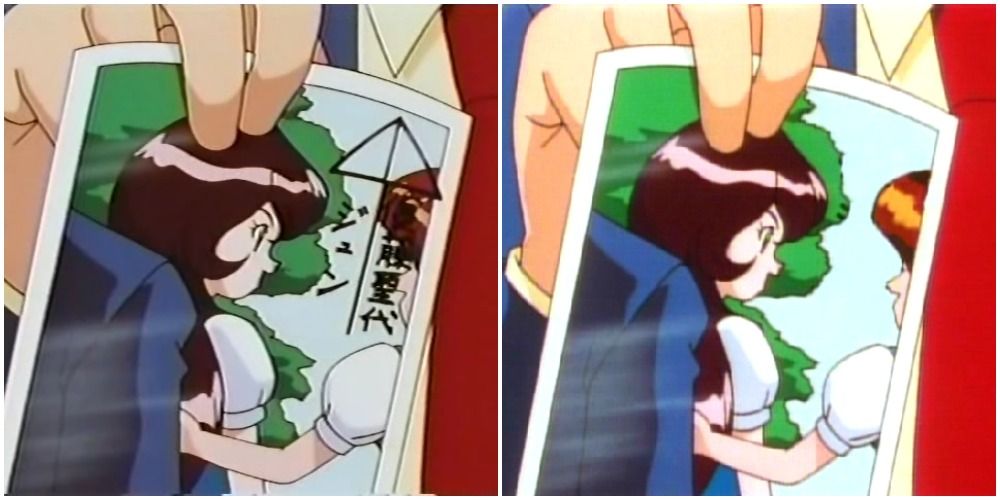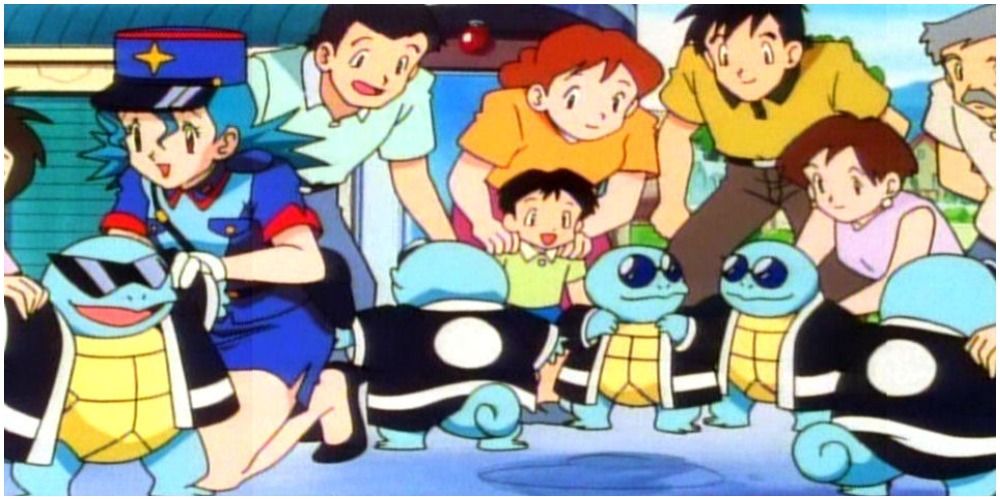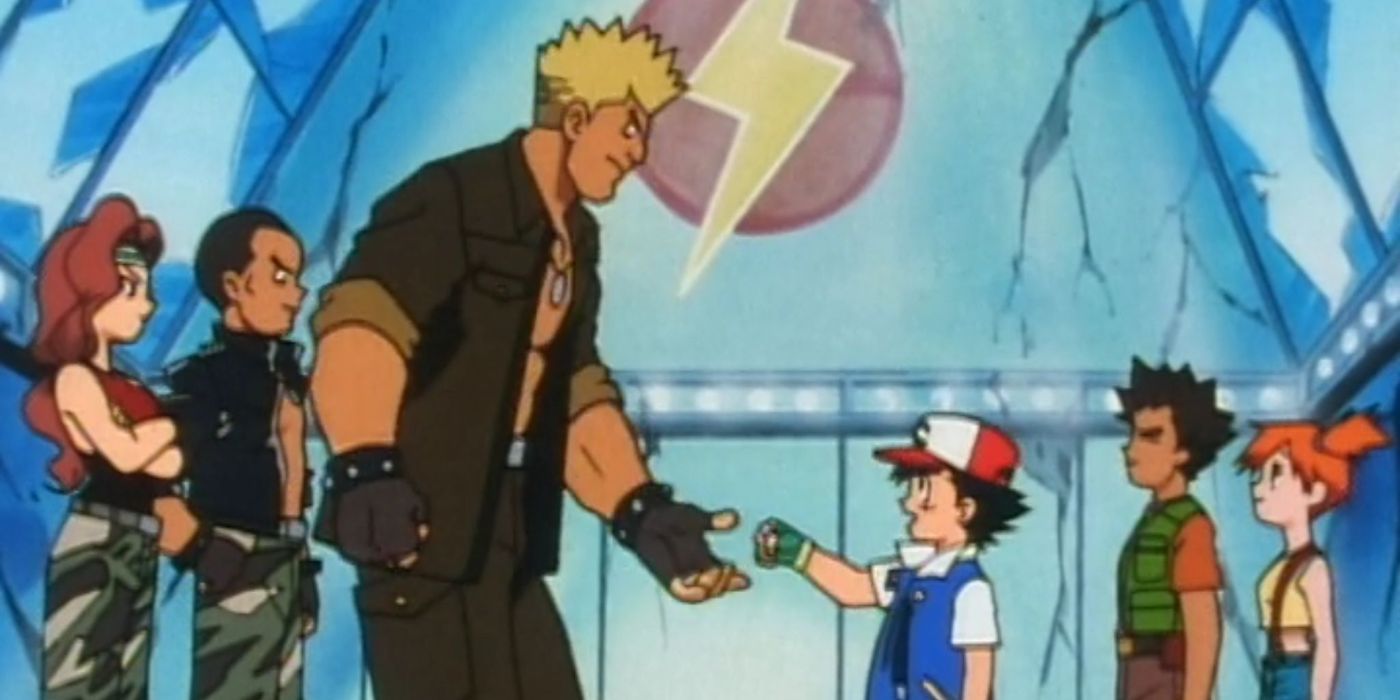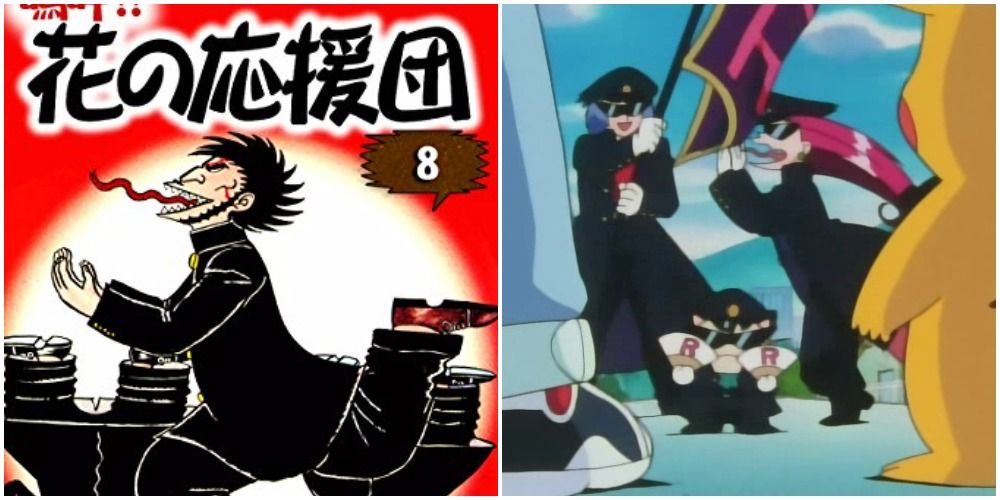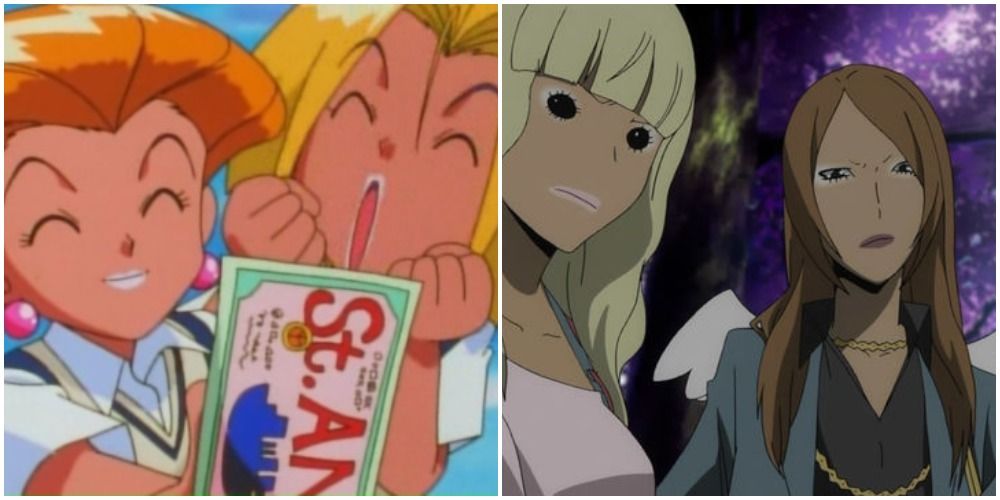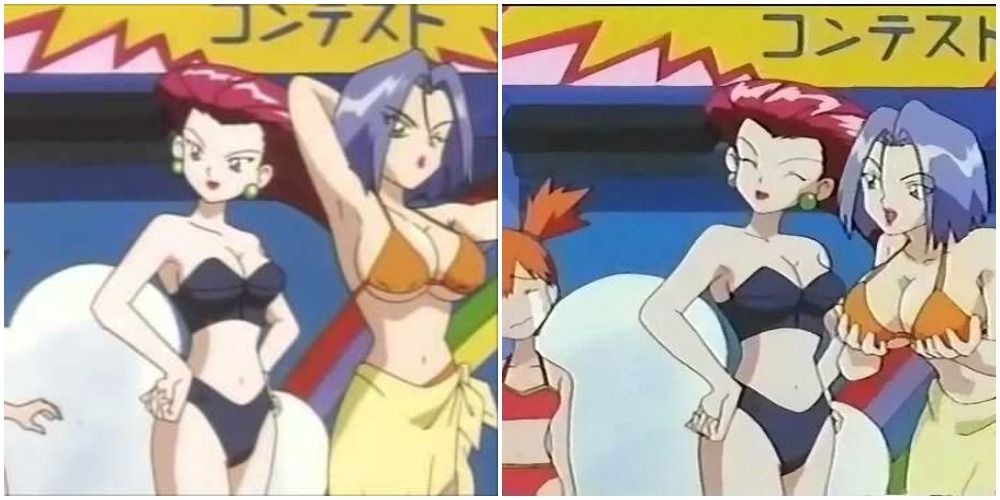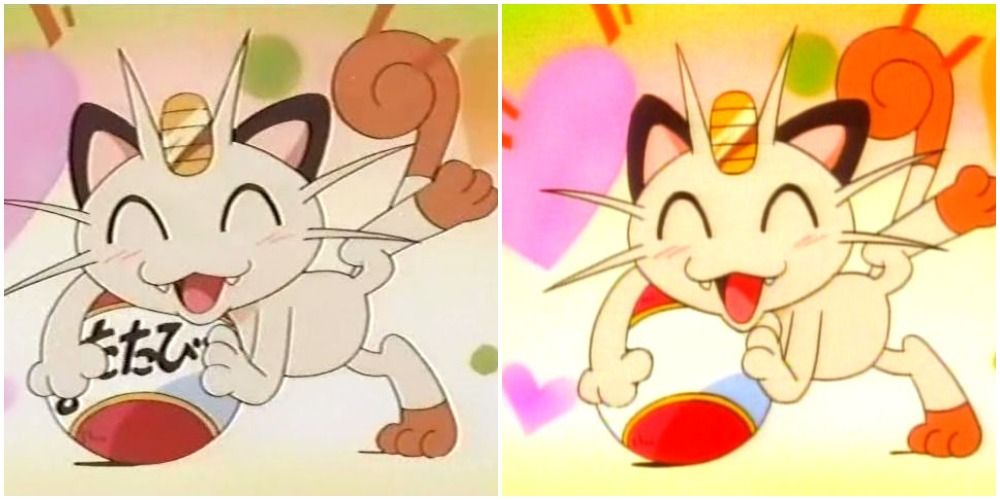"Dubs vs. subs" is a hotly debated topic, but one thing dubs can never capture is the original audio's spirit. Specifically, it's important to remember that the content for dubbing comes from another country, meaning that country's culture will likely influence the storytelling. It's usually in subtle ways, such as a character's body language or gestures, but sometimes it's blatantly obvious.
Anime that are set in fictional worlds frequently default to Japanese culture standards, and Pokémon is no exception to this. The 4Kids version of the original Pokémon series that aired in 1998 is riddled with attempts to erase or overwrite Japanese cultural influences in the series. Japanese text, food, and dialogue were often edited out of the series, resulting in some awkward moments.
10 Pikachu Tried To Show Ash His Teeth In The First Episode
Pokémon has many visual puns early on, meaning the jokes can't be understood without the original dialogue. In the first episode, Ash is trying to get Pikachu to open up to him. In English, he asks Pikachu to "open his mouth" and tell Ash what's wrong, and Pikachu obliges. Obviously, Ash couldn't have expected an intelligible answer, since Pokémon don't speak human language. In the Japanese context, the joke is where Satoshi (Ash's original name) asks Pikachu to listen to his story. Satoshi uses the word "hanashi," which is related to speech and stories, but it also sounds like "ha nashi," which is a phrase that means "no teeth." Pikachu opened his mouth to show that he does, in fact, have teeth.
9 Team Rocket Used Mikan Boxes To Create Their Kakuna Disguises In Episode 4
Episode 4 sees our heroes making their way through Viridian Forest on their way to Pewter City. The forest is packed with bug Pokémon, namely Caterpie and Weedle. And of course, if there are Weedle around, then Beedrill should be nearby. Team Rocket, unfortunately, found themselves at the mercy of the Beedrill, so they tried to blend into their surroundings by making Kakuna costumes to hide in. In the Japanese version, the hiragana for "mika" is visible on Jessie's Kakuna disguise, but it was edited out in the English dub. The disguises are obviously made from cardboard, and cardboard boxes meant for carrying oranges (or "mikan" in Japanese) are common sights in Japanese produce markets.
8 Brock Is Linked To Another Anime Character In Episode 5
This joke takes some inside knowledge to understand. Fortunately, it works as a standalone joke, but knowing the context enriches the experience. In this episode, Ash is trying to win the Boulder Badge from Brock. During their fight, Brock's siblings jump onto Ash and hold him back so he can't order Pikachu to deliver the finishing blow. Another popular '90s anime, Fushigi Yugi, features a remarkably similar scene for one of its protagonists, Tamahome. During the scene, Tamahome's younger siblings hold back another character to help Tamahome win a fight. The joke is in the fact that both Brock and Tamahome have the same voice actor, Yuji Ueda.
7 There's A Love-Love Umbrella In Episode 9
This episode features Joe, a student at a Pokémon school that teaches trainers the theories of Pokémon battling. Ash becomes upset at how the other students are treating Joe and demands to know who's in charge so he can give them a piece of his mind. Joe whips out a candid photo of Giselle (or Seiyo in Japanese), the head student of his class.
In the original Japanese, Jun (Joe's original name) drew an ai-ai-gasa (translated to "love-love umbrella") on the photo with his and Seiyo's names under it. A love-love umbrella is a kind of charm in Japanese that's akin to drawing an arrow through a heart, meaning they're dating or have a crush.
6 The Squirtle Squad Is Dressed As Edo Period Firefighters In Episode 12
While the English version does state that the Squirtle Squad is being honored as the town's firefighters, the iconic garb that the Squirtle are given doesn't make sense in a non-Japanese context. In Edo-period Japan, most architecture was made of wood. Because of this, fires were a common enough occurrence that the machi-bikeshi were founded. Made up of the Japanese words for "town" and "firefighter," machi-bikeshi were considered exceptionally brave for standing up to the massive blazes that engulfed Japanese towns in Edo-period Japan. Part of the machi-bikeshi's outfit included a haori jacket that represented their role as a firefighter, just like the ones that the Squirtle are gifted.
5 Lt. Surge Spoke With A Heavy American Accent In Episode 14
For an American audience, Surge is a different type of stereotype: a military stereotype. He's got a boot camp attitude that ridicules Ash and his unevolved Pikachu as weak. In Japanese, this joke carries a different connotation and is delivered differently. Considering Japan's history with the U.S. military, it's common enough to see American stereotypes copying a macho army man. But what's more important is how they speak. Lt. Surge's Japanese voice actor, Fumihiko Tachiki, spoke with a heavy, stereotypical American accent and peppered his speech with English words. At one point, he even uses the curse word "goddamn," which was completely edited out of the English dub.
4 Team Rocket Is Dressed As Ouendan In Episode 14
Like the Squirtle Squad in episode 12, Team Rocket dresses as another distinctly Japanese archetype in this episode. Before his climactic rematch with Lt. Surge, Team Rocket appears wearing distinctive caps, black coats, sunglasses, and white gloves to cheer for Ash's win—all typical attire of a Japanese ouendan, or cheering squad. The caps and coats are references to gakuran, a type of Japanese school outfit for boys that was also modified for use in ouendan. As an added joke, this scene references a classic gag series about ouendan called "Ah! The Flower Cheering Squad" with Jessie copying the iconic pose of the main character.
3 Team Rocket Dresses As Ganguro In Episode 15
Once again, Team Rocket takes on an appearance that benefits from added context. In this episode, Jessie and James give Ash tickets to board the St. Anne for an exclusive trainer party. Both Jessie and James have dramatically tanned their skin and have dyed their usual red and blue hair to orange and blonde. Their dialogue is cheery and preppy with lots of slang. So far, this is a trope that exists outside of Japan as well, but what stands out about Jessie and James here is their lip color.
Ganguro is a subculture in Japan that combines tanned skin, orange or blonde hair, excessive use of slang, and white lip color and eyeliner with an eccentric sense of clothing style. This subculture was popular with schoolgirls during the '90s, which coincides with the time that the original Pokémon was being produced.
2 James Has Inflatable Breasts In Episode 18
This episode was banned entirely when it first came out but has since been released as "the lost episode" with scenes cut - including scenes with James in a bikini sporting large, inflatable breasts. This scene is popular amongst Pokémon fans due to the sheer absurdity of James going so far to win the bikini contest. And to make it more outrageous, he teases Misty and makes her jealous. Since this show was intended for children, it's no wonder the scene was cut from the English dub.
1 Meowth Plays With A Catnip Ball In Episode 20
This episode must have been a challenge for the dubbing team since the festival Ash attends is based on o-bon, a distinctly Japanese holiday, and much of the episode's scenery represents typical o-bon decorations. O-bon is roughly analogous to Mexico's Day of the Dead, where living family members pay homage to their deceased family. Accordingly, Gastly plays a large part in this episode. One of Gastly's abilities is to create illusions and it poses as the ghost of a maiden for most of the episode. Once Ash's PokéDex identifies the ghost as a Pokémon, they take turns trying to fight it. When Meowth attacked, he was given a ball to play with. In the Japanese version, the ball includes the word "matatabi," which means "catnip."

